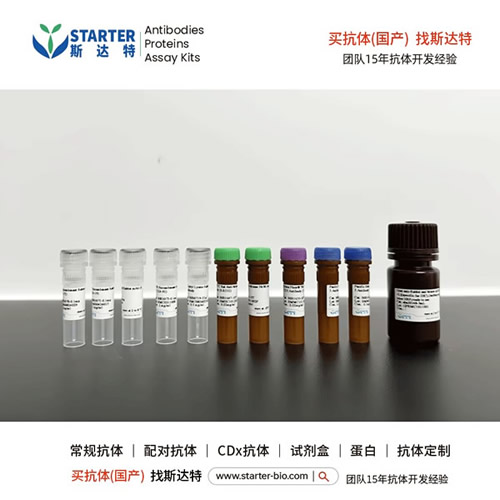斯達特(Starter),國產抗體專家,
產品別名: elF4A1 Rabbit Polyclonal Antibody
eIF4A1, or eukaryotic translation initiation factor 4A1, is a protein that plays a crucial role in the initiation of translation in eukaryotic cells. It is one of the subunits of the eIF4F complex, which is responsible for unwinding the secondary structure of the mRNA 5' untranslated region (5' UTR) to facilitate the binding of the 40S ribosomal subunit to the start codon. Deregulated translation initiation, including the overactivity of eIF4A1, is implicated in cancer initiation and progression. This makes eIF4A1 an attractive target for cancer therapeutics. Researchers are actively pursuing strategies that target eIF4A1 to inhibit tumor growth and proliferation. Several natural product molecules, such as Rocaglamide A (RocA), have been reported to target eIF4A1, but their clinical utilization has been limited due to pharmacological limitations. In the context of cancer, eIF4A1 has been associated with poor outcomes in diffuse large B cell lymphoma (DLBCL). Higher expression levels of eIF4A1 are linked to shorter overall survival and progression-free survival in patients with DLBCL. This suggests that eIF4A1 expression could serve as a prognostic biomarker for this type of cancer. eIF4A1 is also involved in the translation of specific mRNAs that have complex secondary structures or are under translational control by factors such as the mTOR pathway. During mTORC1 inhibition, eIF4A1 enhances the translational repression mediated by LARP1 (La-related protein 1), which is a key regulator of mRNA translation.
bio-equip.com





